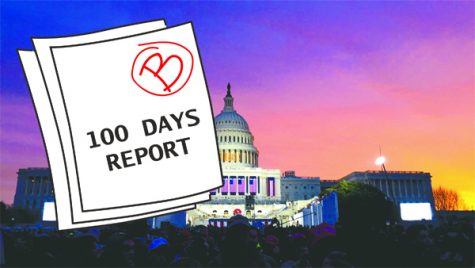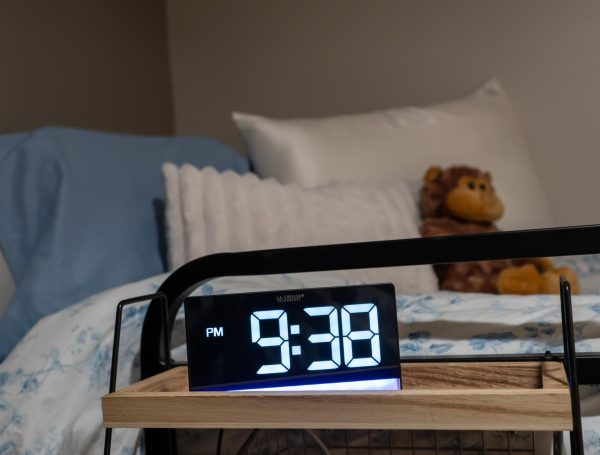Presidential debates, democrats and republicans
Third party candidates fail to secure a place on the stage
Third party candidates Gary Johnson and Jill Stein were officially told by the nonpartisan Commission on Presidential Debates they wouldn’t be joining Donald Trump and Hillary Clinton for the first presidential debate at Hofstra University on Sept. 26, and their running-mates will not be in the vice presidential debate on Oct. 4.
The Commission on Presidential Debates (CPD) announced the 2016 Nonpartisan Candidate Selection Criteria in a public release on October 29, 2015, in which they clearly define the criteria to qualify for participation in the presidential debates. The commission sets the criteria in accordance with Federal Election Commission Regulations, which require a debate sponsor to make its candidate selection decisions based upon “pre-established, objective” criteria.
The commission has three criteria candidates must meet in order to qualify for the debates. The candidate must be constitutionally eligible to be president, have achieved ballot access in enough states to theoretically win an Electoral College majority in the general election, and has demonstrated a minimum of 15 percent support in five selected national polls: ABCWashington Post; CBS-New York Times; CNN-Opinion Research Corporation; Fox News; and NBC-Wall Street Journal.
While Johnson and Stein successfully met the first two criteria, they failed to demonstrate the 15 percent support required to participate. The commission reported that Hillary Clinton polled at 43 percent, Donald Trump at 40.4 percent, Gary Johnson at 8.4 percent, and Jill Stein at 3.4 percent.
Since Clinton and Trump met the criteria required to participate in the first debate, their runningmates are automatically qualified for the vice presidential debate on Oct. 4. Public opinion shows that
Clinton and Trump have the support needed to potentially win the election.
The exclusion is a major setback for the struggling campaigns of both Johnson and Stein. The third party candidates argue that voters deserve to hear alternative voices during the course of the general election. They considered the debate an opportunity to revitalize their campaigns and obtain the exposure needed to win in the general election.
Being excluded from the presidential debate didn’t come as a shock to Johnson. On Friday, he issued a statement criticizing the CPD’s decision, and argued that the commission was skewed in favor of the two party system.
“I would say I am surprised that the CPD has chosen to exclude me from the first debate, but I’m not,” Johnson said. “After all, the Commission is a private organization created 30 years ago by the Republican and Democratic parties for the clear purpose of taking control of the only nationally-televised presidential debates voters will see. At the time of its creation, the leaders of those two parties made no effort to hide the fact that they didn’t want any third party intrusions into their shows.”
Claiming partisan bias because of the exclusion from the first presidential debate doesn’t surpass failure to meet the criteria set by the commission. Third party political affiliation does not overrule a candidate’s failure to meet the criteria set to qualify for the debates.
The 2016 Nonpartisan Candidate Selection Criteria, released almost a year before the first debate, discusses the purpose of the criteria used for candidate selection.
“The purpose of the criteria is to identify those candidates whose support from the electorate places them among the candidates who have a realistic chance of being elected President of the United States,” CPD Director Dorthy Ridings explained.
“The realistic chance need not be overwhelming, but it must be more than theoretical.” Johnson and Stein’s current polling percentages indicate they have not generated enough support to have a genuine chance of being elected in November.
In spite of the popularity of each third party candidate increasing in recent weeks, the failure to meet the 15 percent threshold indicates that their chance of being elected are extremely minimal.
Why should Clinton and Trump be required to meet certain requirements that Johnson and Stein aren’t?
Johnson and Stein both deserve to see their campaigns through until the election, as that’s the beauty of democracy.
However Johnson and Stein should be held to the same requirements Clinton and Trump are to qualify for the debate. The CPD won’t look past their failure to meet the required criteria to participate and they shouldn’t. The third party candidates simply did not generate enough support to qualify.
However, Clinton and Trump shouldn’t consider the third party candidates ‘out of the way’ by any means. The commission said that they will be reevaluated for future debates using the same criteria. If their numbers improve, the third party candidates and their running-mates could still be invited to participate in the second and third debates.
Although the exclusion from the first debate denied Johnson and Stein the exposure to the national audience they had hoped for, both candidates have voiced their commitment to showing the voters an alternative to the major party candidates.
Liz Kacher is a staff writer for The Dakota Student. She can be reached at [email protected]








